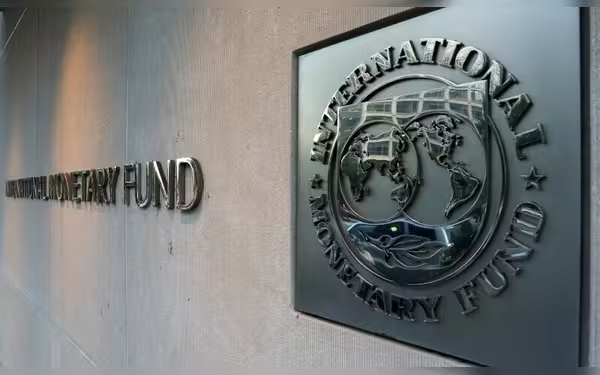Saturday, November 16, 2024 07:42 PM
IMF Loan Approval and Pakistan's Economic Reforms
- IMF approves $7 billion loan for Pakistan's economy.
- Prime Minister vows this will be the last IMF assistance.
- Debt management and economic openness are critical challenges.
 Image Credits: dawn
Image Credits: dawnPakistan secures $7 billion IMF loan, aiming for economic reforms and sustainable growth amidst pressing challenges.
The International Monetary Fund (IMF) has recently approved a significant loan of $7 billion for Pakistan, marking the 25th loan agreement between the two entities. This financial support is intended to span the next three years and comes at a time when the country is grappling with various economic challenges. IMF Managing Director Kristalina Georgieva expressed optimism, stating, "Growth is up, inflation is down, and the economy is on a sound path." However, she also highlighted that Pakistan must address several pressing issues, including a tough business environment, a large state role in the economy, and a limited tax base that hampers investment.
Prime Minister Shehbaz Sharif welcomed the IMF's approval, asserting that this would be the last time Pakistan seeks such financial assistance. His confidence stems from recent improvements in the economy and ongoing structural reforms aimed at increasing the tax-to-GDP ratio, privatizing loss-making state enterprises, and enhancing the energy sector's sustainability. A seven-member ministerial committee is currently reviewing the "home-grown reforms agenda," which aims to tackle the country's economic hurdles.
Among the most critical challenges Pakistan faces are reducing its debt burden and achieving greater economic openness. Recent data indicates a positive trend in debt management, with government and guaranteed debt decreasing from 81.5% to 73% of GDP. However, this figure still exceeds the 58% limit set by the Fiscal Responsibility and Debt Limitation Act of 2005. Experts warn that a debt-to-GDP ratio above 60% places a country at risk of default. In the fiscal year 2023, interest payments consumed a staggering 68% of tax revenue, leaving insufficient funds for essential services like education, health, and infrastructure.
To address the debt issue, Pakistan has two potential paths. One option is to follow Sri Lanka's example by defaulting and seeking debt restructuring, but this approach carries significant risks, especially since 60% of Pakistan's debt is domestic. Political instability could exacerbate inflation and create new economic problems. The second option involves negotiating with major creditors to extend repayment deadlines, a strategy that has proven successful in the past.
The government is reportedly working on reprofiling $16 billion in Chinese bilateral debt related to energy projects. While initial expectations suggested a quick resolution, the finance ministry has indicated that this process may take months or even years. It is worth noting that China has already played a crucial role in alleviating Pakistan's debt burden by rolling over and extending loans.
For Pakistan to overcome its debt challenges independently, it must focus on enhancing productivity, increasing economic openness, and reducing resource misallocation. This can be achieved by developing skills that align with the demands of a modern economy, such as digital literacy and technical skills. Although there are efforts to promote innovation hubs, recent declines in internet connectivity pose a significant hurdle. Embracing Industry 4.0 practices will be essential for streamlining workflows and fostering smart manufacturing.
Economic openness will require Pakistan to lower tariffs and non-tariff barriers, encouraging international trade. Normalizing trade relations with neighboring countries could be a vital step in this direction. Additionally, the federal government must fully transfer control of devolved subjects like education and health to the provinces, as the process of devolution has not progressed as expected since the 18th constitutional amendment was passed nearly 15 years ago.
With the current momentum, Pakistan has a genuine opportunity to make this the last IMF bailout program. However, achieving this goal will necessitate more than just economic reforms. It is crucial to lower political tensions and foster inclusivity by addressing the concerns of all stakeholders. By doing so, Pakistan can pave the way for a more stable and prosperous economic future.













